4 European Destinations For Digital Nomads That Cost Under $2000 Per Month
4 min readLast Updated 2 mins ago
Europe is every digital nomad’s favorite playground: nowhere in the world will they find that country-hopping is as hassle-free as in the Old Continent, where borders are essentially a non-existing concept, and the wide availability of trains and low-cost flights make it incredibly easy to travel.
The only downside to Europe, however, is how expensive it can be, particularly if you’re a budget-conscious nomad who’s looking to settle temporarily somewhere affordable and cool enough: though they may be inherently fascinating, many European countries are becoming unliveable.
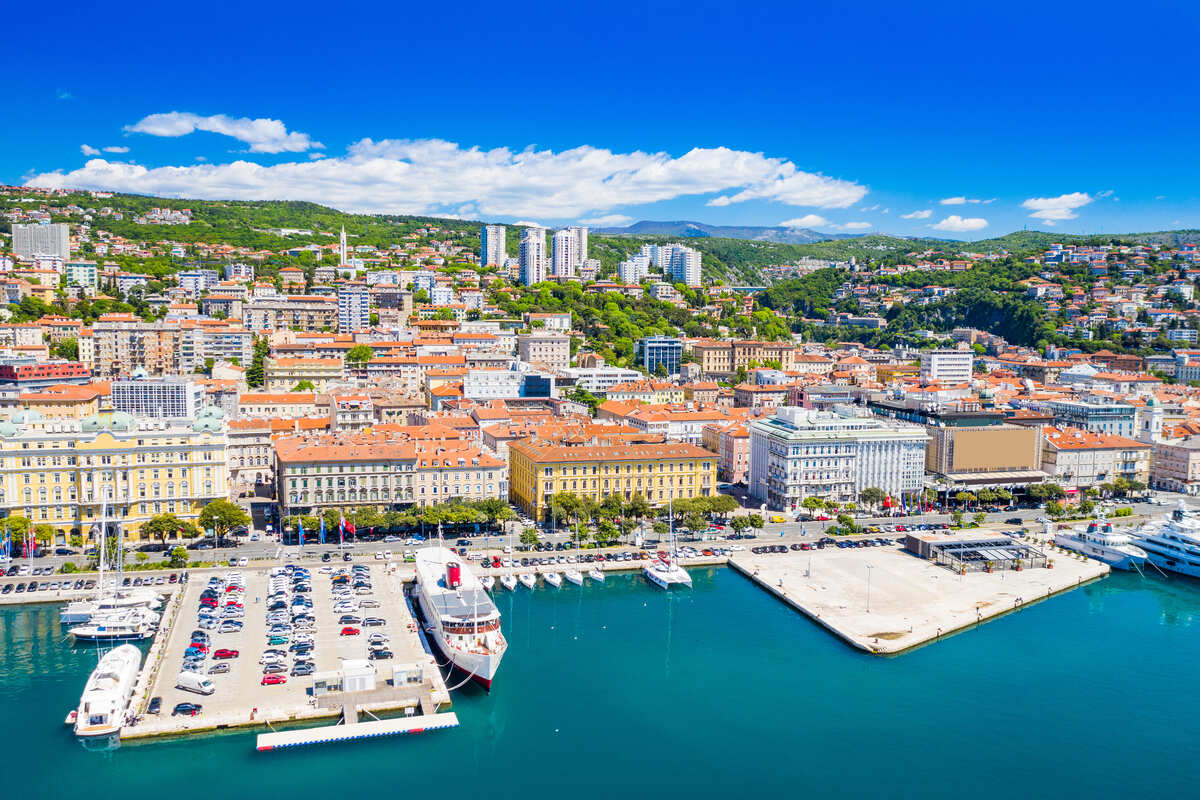

Be it soaring rates of overtourism, the strength of the euro against the dollar, or the surging inflation, which is giving locals themselves plenty of reasons to complain, options keep dwindling, so where exactly can remote workers relocate that will not break the bank?
Here are our top five picks for European spots where it costs less than $2,000 per month to live:
Rijeka, Croatia
The third-largest urban center in Croatia, Rijeka is a surprisingly multicultural city and seaport famous for its diverse demographic and numerous cultural attractions.
Rooted in both the Croatian and Italian worlds, it is a melting pot of neighboring cultures.
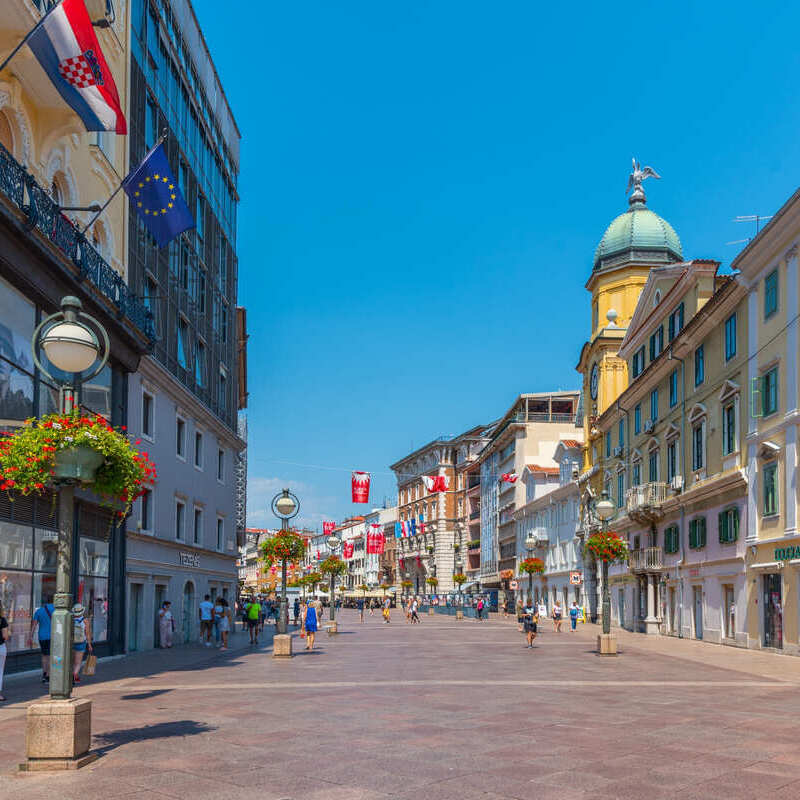

Due to its proximity to Italy, more specifically Venice, which sits just across the Adriatic inlet, the city has its own unique dialect of the endangered Venetian language (Fiumian), spoken mainly among ethnic Italians living locally, as well as Chakavian, a regional dialect of Croatian.
Among the most famous landmarks, the Croatian National Theatre Ivan pl. Zajc stands out, an 18th-century effort by renowned Austrian architects Fellner & Hellner and a Venetian-inspired Old Town dominated by the medieval Church of the Assumption.
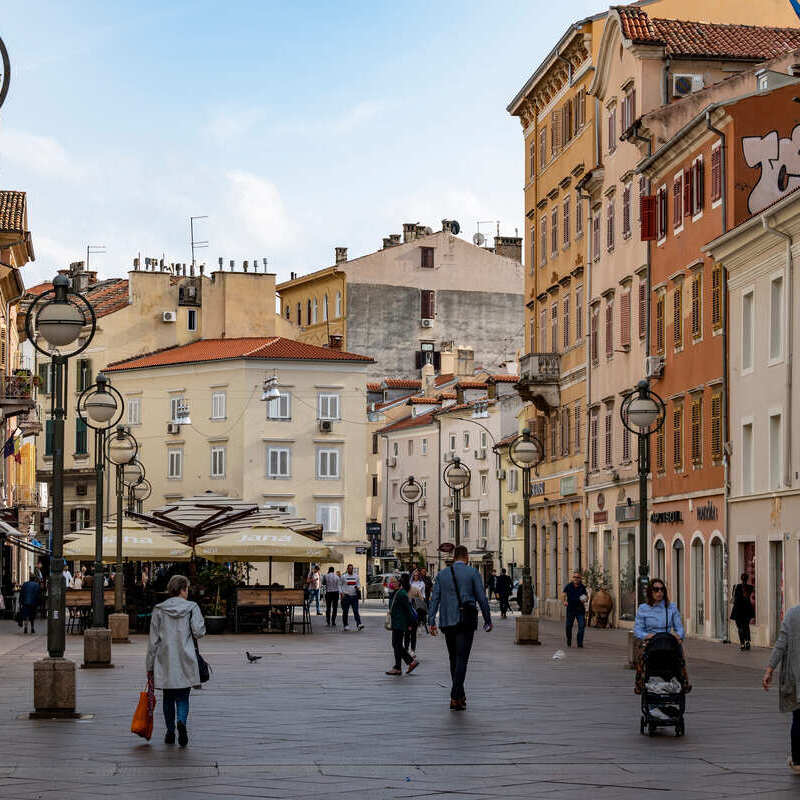

For digital nomads, Rijeka is one of the top destinations in Croatia, as it costs only $1,677 per month to live and work remotely there, as per data gathered by Nomad List, not to mention the good air quality, proximity to the seaside, and internet speed (22 mbps on average).
Gran Canaria, Spain
The main island in Spain’s autonomous Canaries archipelago, Gran Canaria is a tried-and-true winter sun hotspot, offering warm temperatures year-round, white sand beaches, nature reserves, and vibrant city breaks, most notably Las Palmas.
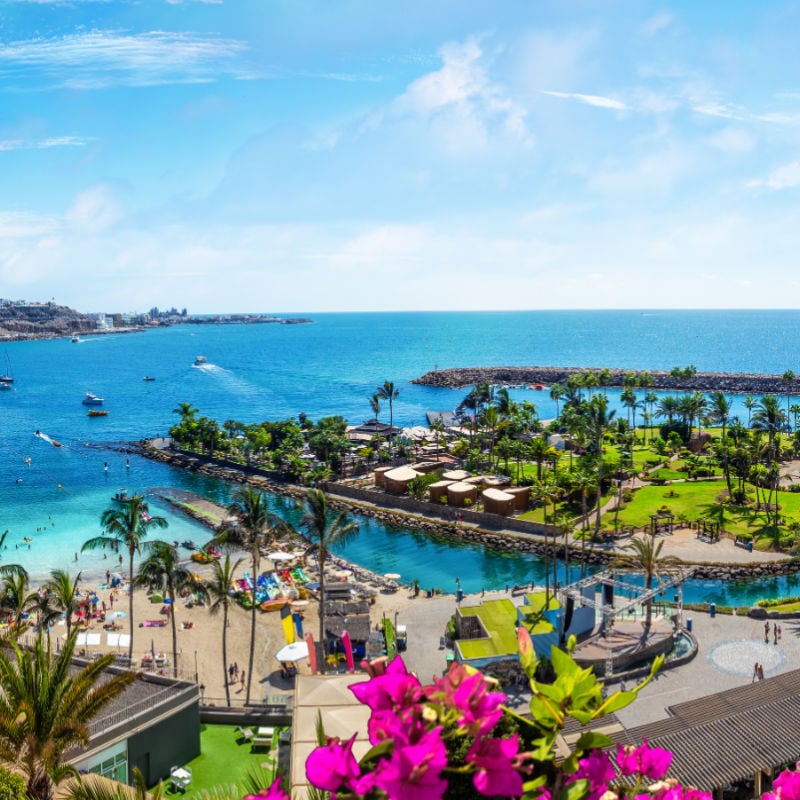

On the digital nomad side, it’s risen to prominence as a result of its high quality of life, easy access to nature, relaxed atmosphere, and most importantly, the lower cost of living compared to other destinations in mainland Spain.
It would naturally depend on where you are based, as prices can be higher in Las Palmas, the regional capital, than the rural, mountainous inland, but it costs on average a mere $1,974 to reside in Gran Canaria monthly.


Some of the aspects nomads love the most about Gran Canaria are the sunny, temperate climate, owing it to the geographical proximity to the African continent, the fact that English is widely spoken, especially among young people in larger cities, and the cheaper prices for food.
Antalya, Turkiye
Dubbed the Queen of the Eastern Mediterranean, Antalya is a gorgeous resort city in Turkiye with millennia upon millennia of accumulated History and a unique mixture of Old World charm and modern seaside developments to call its own.
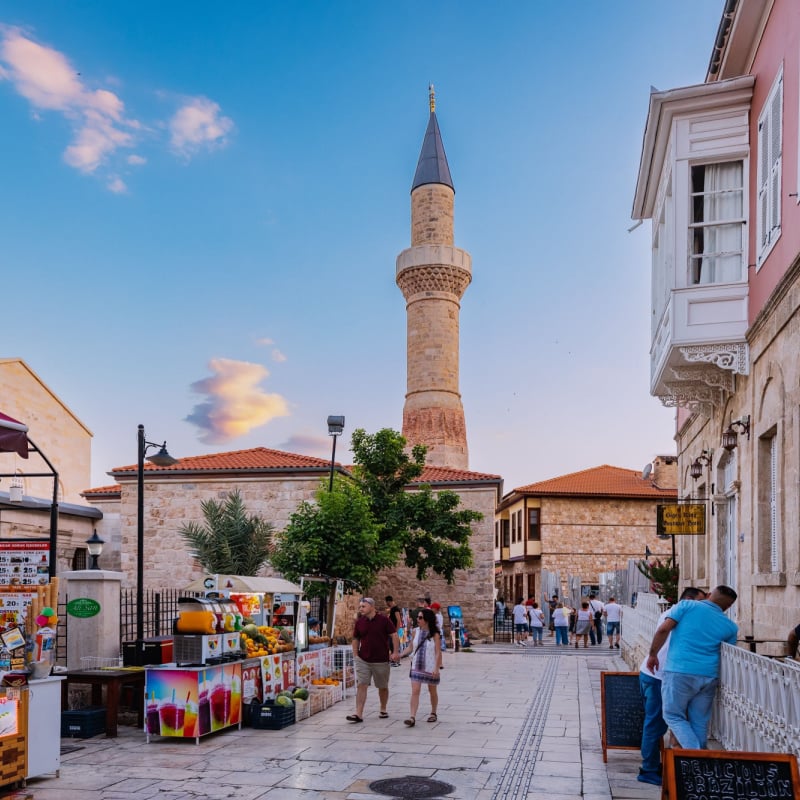

The Old Town part, locally known as Kaleici, is a maze-like cobbled zone lined by traditional shops and restaurants, guarded by a 2,000-year-old Roman city gate, and it’s easily Antalya’s most picturesque and culturally significant district.
In Konyaalti, however, the ancient cityscape gives way to clusters of skyscrapers and residential buildings distributed along a sand-and-gravel beach strip, bounded by waters of the shiniest blue, within walking distance of Westernized eateries and leisure and shopping complexes.
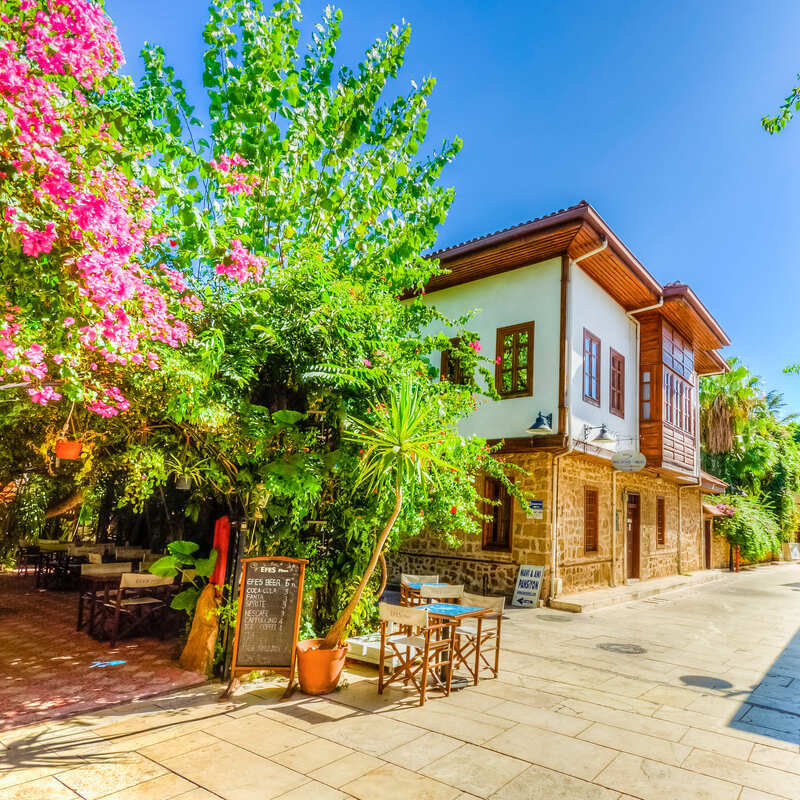

Antalya is old and historical, but it is also cool and trendy, and its low cost of living – Nomad List estimates it is possible to reside here on $1,235 per month – make it a highly sought-after destination for remote workers from both Europe and the U.S.
Now that Turkiye has lifted visa requirements for Americans, Antalya has become even more attractive to the average U.S. visitor.
Split, Croatia


The second Croatian entry on this list, Split is a unique city in the sense that it originally developed around the abandoned ruins of a Roman palace built for an emperor. This means much of the so-called Old Town is still found within the remaining walls of this ancient structure.
It is made up of a series of winding alleys leading to hidden patios and family-owned bakeries, yet outside the Diocletian fortress, visitors will find a palm-flanked marina interspersed with luxurious hotels, nightclubs, and charming oceanfront cafes.
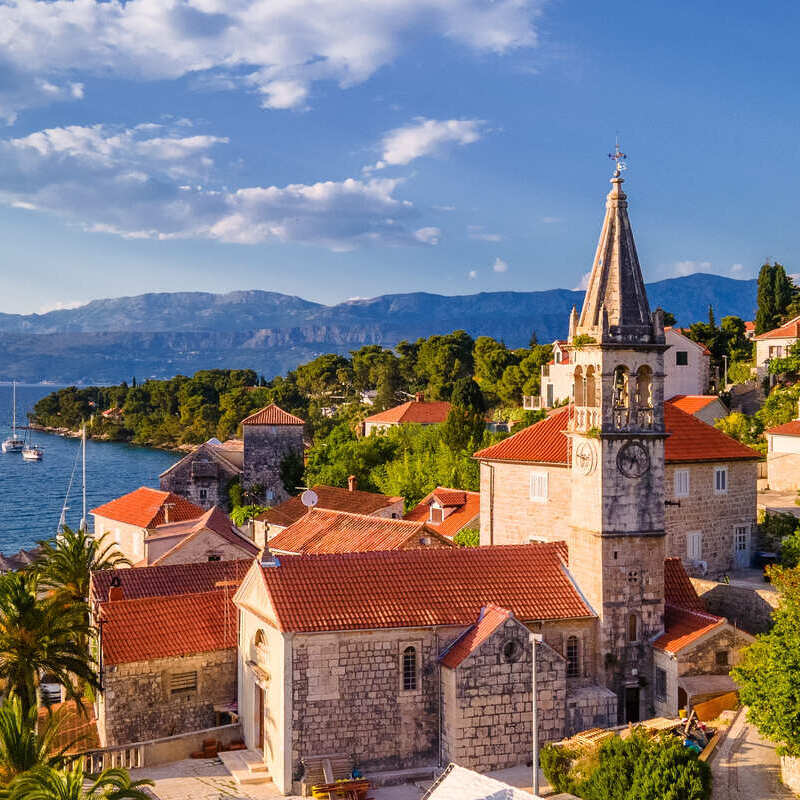

Much like Antalya in Turkiye, Split has stolen our hearts with its combination of European ‘old’ and 21st-century coastal getaway: seeing centuries-old monuments coexisting harmoniously with — is no strange sight here.
Then, there is Split’s affordability: based on 726 impressions by members of Nomad List‘s online community, nomads can expect to pay around $1,998 per month living among locals in Croatia’s second city.
Read More:
Top 5 Travel Insurance Plans Starting At $10 Per Week
How To Easily Earn Points For Free Travel
↓ Join Our Community ↓
The Travel Off Path Community FB group has all the latest reopening news, conversations, and Q&A’s happening daily!


SUBSCRIBE TO OUR LATEST POSTS
Enter your email address to subscribe to Travel Off Path’s latest breaking travel news, straight to your inbox.
This article originally appeared on TravelOffPath.com



